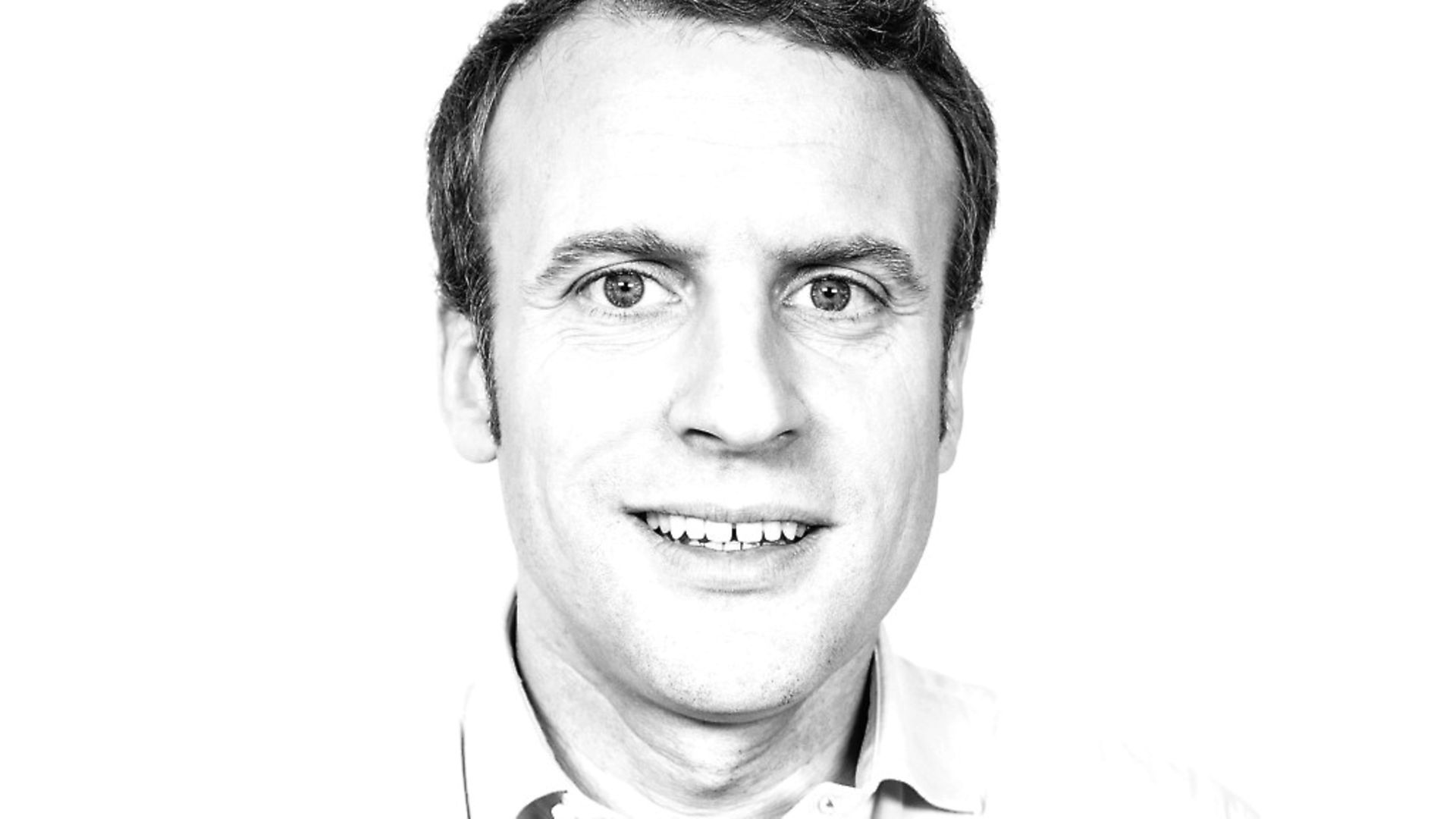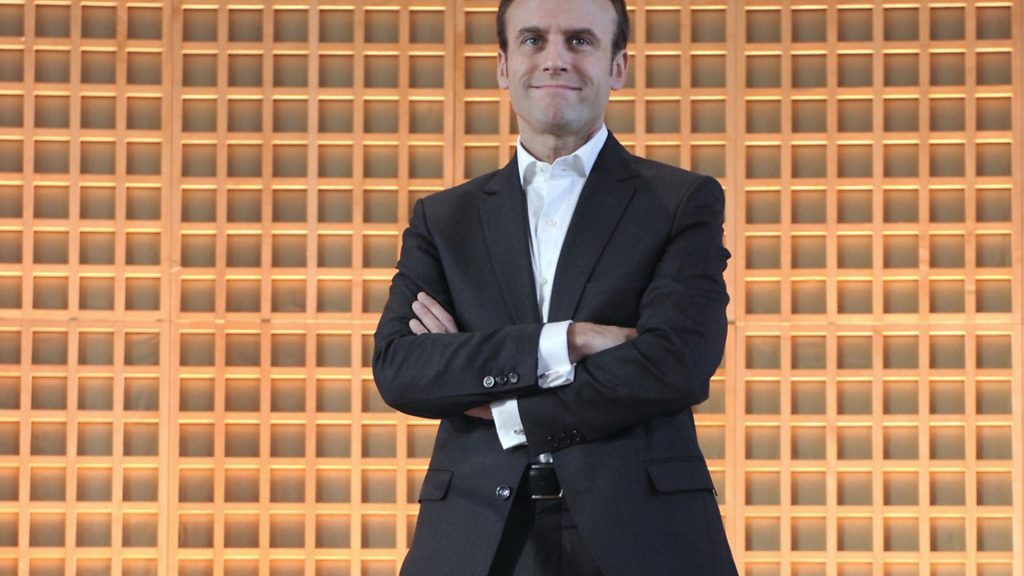
Emmanuel Macron has been lucky. But also courageous. Here’s how the combination has led to a remarkable turnaround in previously gloomy nation

All our presidents of the Republic dream of burying a well-known figure in the Pantheon. It’s a mania. A sort of canine way for them to mark their territory. There are plenty of people who should be buried in the Pantheon but who are not. And among the 75 who are buried there are many we have now forgotten – which is a proof that they haven’t marked history so much. Another incongruity of this neoclassical monument – planted in the middle of Paris’ Latin Quarter to honour, in a non-religious way, France’s great personalities – is that there are hardly any women (just three who are there on their own merits). They were not foreseen, according to the inscription that has adorned the pediment of the building since the eighteenth century: «Aux grands hommes, la patrie reconnaissante» – ‘To great men, the grateful fatherland’. François Hollande showed a good feminist intention, but he who never knew how to make a decision choose a pantheonised four-in-one option – two men, two women. Yes, we do say ‘pantheonise’. This three centuries-old French vanity has become a verb.
Once again, and it is one of his characteristics, Emmanuel Macron has been lucky: the most extraordinary female French public figure of all time died at the beginning of his mandate. Simone Veil. Dignity, courage, humanism, morality, justice, political commitment, modesty, extreme beauty. She had them all. A survivor of Auschwitz and a human rights fighter. A feminist, without needing to claim to be one – she faced the filthy insults of a misogynist national assembly entirely composed of men, in 1974, as she pushed through her law on the legalisation of abortion that changed our lives. The first President of the European Parliament, she was an authentic European with personal experience of the horrors of nationalist madness who saw the institutions of Europe as the key to ensuring that her grandchildren were never denounced, arrested or killed simply for being Jewish or foreign. A woman of the right, a minister of Valery Giscard d’Estaing’s, but – unusual for the time – one who won the respect and admiration of those on the left. One of my childhood memories of my mother, a leftist, was hearing her always taking the precaution of adding a ‘except Simone’ when she spoke ill of ‘right wing people’ – that is to say, often.
The whole of France had demanded the pantheonisation of Simone Veil. During her national funeral, and in agreement with the family, President Macron took the opportunity to announce that she would be buried in the Pantheon with her husband. If I were Simone, I would prefer to remain quietly where she is, in the charming Montparnasse cemetery (beside my house, what’s more), rather than find myself at the bottom of that gloomy Pantheon, far from the sun and birds. But everyone seems pleased with the decision and for Macron it is a godsend: this is an extraordinarily popular measure that fell from heaven and cost him nothing. In addition to his amazing political intelligence, his charisma and ability to muster, Macron has another characteristic: he has incredible luck.
Since he set himself the goal of conquering the Elysee, the obstacles have retreated before him one after the other like the Red Sea before Moses: President Francois Hollande gave up running for the job again; Alain Juppé, his main opponent on the right, a centrist like him and hyper-popular, was beaten at the primaries by François Fillon. Manuel Valls, his main opponent on the left, also a centrist, was eliminated in the Socialist primary by Benoît Hamon, who evaporated into the ether. In turn Hamon’s chances were wrecked to his left by the rise – though not far enough to damage Macron – of Jean-Luc Mélenchon while Fillon, who had seemed destined to be elected, then exploded amid personal scandal and crisis. Marine Le Pen, who could still have won in the event of a final duel with Mélenchon, committed suicide at the last minute in the televised debate between the two rounds of voting. Macron remained quiet. He needed to do almost nothing but watch his rivals disappear.
There is something of Machiavelli and Mozart in this man. Machiavelli, for his capacity to secure power by adapting to circumstances. Mozart, for his ability to envision his whole works (election victory) before he had begun to write down the score (the campaign). As the musician said of The Magic Flute, before he had written a single note: ‘It is done. It is there, in my head.’
The Macron phenomenon is a mixture of visionary insight, unwavering ambition, experience of the inner workings of power (at the Elysee and the Ministry of Economy), as well as the business world (his four years at Rothschild bank) and technocratic expertise. He was first to understand the extent to which the partisan political system was rotten and moribund, and offered an alternative of optimistic values, unlike the populist parties, spitting on the system, exploiting fears and hatreds. He has shown foresight in the diagnosis, as well as intuition in the implementation and meticulous organisation of a campaign started from scratch, without any electoral base, with a handful of amateur ‘footsoldiers’. He sowed chaos and panic in shattering the traditional left-right political cleavage, breaking parties and codes; he aroused incredulous mockery and succeeded in this crazy exploit: conquering the Elysée.
When still Economics Minister, he wrote a handwritten note to a friend who was a député (MP): «Prépare-toi, on va charger!» – ‘Get ready, we are going to charge’! This military language, this young man so sure of himself, made us smile. We found him bright, charismatic, politically interesting, but to believe in it… Listening now to recordings of experts and politicians chuckling with disdain and contempt for Macron’s future (‘He is nothing’, ‘He knows nothing about politics’, ‘This is just a bubble waiting to burst’) brings some enjoyment. With the exception of a handful of enlightened or compulsive optimists, no one imagined his success. Even once he was elected, no one believed possible this incredible tidal wave his party archieved in the National Assembly elections, managing, through Machiavellianism, to extinguish the Socialist Party and divide the right. It’s like a child who sets foot on an ant-hill and watches with great joy as the insects run away in all directions to seek a new refuge.
He had the courage of his obstinacy. Macron was elected on three themes: Europe, centrism, and ‘rupture’ – breaking away from the past. He knew that the first two were not popular, and yet he held on to them, not without courage. As for the third, the rupture, Macron is ambivalent. In presentation, he retains a flamboyant traditionalism. His arrival, at a very slow pace, at the pyramid of the Louvre on the evening of his election (with the remarkable audacity to prefer the European anthem to the Marseillaise), and the same imperial approach to joining the parliamentarians gathered at Versailles … He shows a taste for splendour, gilding, soldiers in arms, that pomp and grandiloquence «à la Française» that in the twenty-first century borders on ridicule.
He himself said that France needed a ‘Jupiterian’ power. Macron took himself for the god of the gods and that is how the media’s cartoonists depict him – dressed as Jupiter/Zeus, when he is not Napoleon, or Louis XIV or in the toga of a Roman emperor. The official portrait of him at the Elysée – destined by tradition to go on the walls of every town hall across France – is a monument of symbolic self-satisfaction, with staging that contrasts with that of his predecessors. The president leans against his desk, between solemnity and relaxation; the two flags, French and European, frame it symmetrically; carefully placed objects adorn the desk, including an open book (the Mémoires de guerre by Charles de Gaulle), two closed books (Le Rouge et le Noir by Stendhal and Les Nourritures terrestres by Gide), a clock for times going by and two showy iPhones for modern times); the window, wide open, with a garden beyond. Subliminal message: the president is in and out at the same time, here and there, front and back, upstage left and upstage right like in a theatre, open to everything and available. This sense of «En même temps» – ‘at the same time’ used to be a tic of Macron’s rhetoric during his campaign and became a slogan, he himself being, at the same time, right and left.
Does Angela Merkel need to show off all this fuss to be leader of Europe’s biggest economic power and world’s fourth? In Berlin, the Chancellor’s procession travels in two cars, without tinted windows and without flashing lights, and stops at red lights. In Paris, the slightest movement of the President of the Republic is an astounding circus – five or six black cars preceded and followed by bikers, and all life around the procession stops. Like certain developing countries, France seems to need to disguise its lack of real grandeur with the most showy, flashy, expensive attributes of power. Because of his young age – just 39 – Macron is probably not in the best position to put an end to it. He needs a little grandiosity to establish his authority, and to restore some charisma to the presidency undermined by the ‘normality’ of his predecessor François Hollande.
This authoritarianism is also part of his strategy. Jupiter would throw lightning bolts, see everything, do anything, decide everything – and moreover, disguised as a bull, he would kidnap Europa! Macron-Jupiter-Zeus is a control freak. One of his spokeswomen argued that the President’s thinking was ‘too complex’ for him to stoop to dialogue with journalists, thus explaining the decision to hold fewer press conferences in future. The President summoned the Congress (députés and sénateurs) to Versailles on the eve of his Prime Minister’s general policy speech, which has never been done and tends to put the importance of the second in perspective.
Skilfully enough, he showed «en même temps» strength and flexibility in dealing with the presidents of the Russian and American major powers, inviting Vladimir Putin with great pomp to Versailles, while publicly telling him what he thought of his interference in the French election, through the pro-Kremlin media sites Sputnik and RT. And he challenged Donald Trump on his own ground, with a crushing handshake at the NATO summit, before cordially inviting him to attend the Bastille Day ceremonies in Paris. Allied to the United States, open to Russia. He recently boasted he could lead Trump to give up his decision to leave the Paris agreement on climate change. But Jupiter remains cautious.
So far, everything has succeeded for Macron. He is the perfect president, that everyone is jealous of and to whom everything is forgiven – for the moment: his monarchical authoritarianism, his arrogance and even his clumsy phrases – reflections of a contemptuous elitism – such as: ‘there are the people succeed and others who are nothing.’ His attempt to bring France’s state of emergency into the common law – which would have given disturbing judicial powers to the administrative authorities – was skilfully suppressed. The opposition does not seem to have succeeded in mobilising against his labour reforms, negotiated in a Scandinavian way, so far.
His luck, again, is to claim himself a European at a time when the EU has never been so strong. The disappointments of Brexit and the revelations, day after day, that British leaders had not foreseen that it was leading to suicide, play the role of a scarecrow and silence eurosceptics. Donald Trump, the crazed Tweeter with his incoherent decisions, frightens. The German Chancellor acknowledged that the United States – and, incidentally, Britain – could not be counted on as partners on whom to rely entirely. Nationalisms are waning here and there. In France, growth is resuming, even if weakly, and should lead to a reduction in unemployment. The French have reconnected with an optimism and a self-esteem which they have not felt for a long time. Lucky Macron won two battles: the first, electoral. The second, psychological. As for his politics in power, we will see.
It is a strange and new feeling, for us French, to find ourselves on the side of the happy. We had become accustomed to our country being depressed, without jobs, without growth, incapable of reform, mocked all over the world for its repeated strikes, always less organised than the Germans, less civilised than the Scandinavians, less dynamic than the Anglo-Saxons. And then, all of a sudden, it’s the opposite. In Berlin, where I was recently, everyone congratulated me on my president, as if I had made it. Yet there is a great discrepancy between the political power of Emmanuel Macron and the fragility of its electoral base. He owes much of his victory to luck. He was only elected with 24% of votes in the first round and 66% in the second, against Marine Le Pen. Abstention was high (25%). In the first round, half the voters opted for extremist, anti-European parties. They are still there. ‘Macromania’ does not represent the real country.
But he succeeded.
Why did he not inspire you, the 48% of Britons who claim to be so opposed to Brexit? During your last general election, you divided as usual between the two traditional parties, while neither the leader of the Tory nor Labour leader were planning to oppose the country’s departure from the EU.
You had an opportunity to prove and show that your political priority was remain in Europe. You proved and showed that it was not as important for you as sticking to old parties and habits. Now you have Tony Blair speaking out insightfully about building a centre and stopping the devastation of Brexit. But your vote at the general elections reinforced the result of the referendum.
If you happen to be real and sincere Remainers, could you not break the rules too and build, at last, a great European party?
Macron has heard them a lot, all those advisers who said ‘Do not do that,’ ‘It’s not possible,’ ‘It’s too early,’ ‘Right and left structure us, you cannot erase them,’ ‘You will never have a majority in the assembly’… And he replied: ‘You do not understand. I have seen it from the inside: this system is dead.’
Marion Van Renterghem is reporter-at-large for Vanity Fair and this article is adapted from a piece currently online in the French edition of the magazine © Marion Van Renterghem / Vanity Fair










